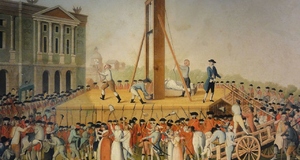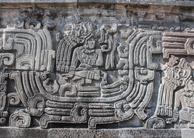Examing the Social Impacts of French Education Reforms in Tonkin, Indochina (1906-1938)
By
2012, Vol. 4 No. 04 | pg. 1/3 | »
IN THIS ARTICLE
KEYWORDS
AbstractEducation reforms were among the most invested projects of French Indochina. The colonial government introduced them for several purposes, including to train a class of elites to serve in local administrative bureaus and to penetrate and “conquer” indigenous culture. There was simultaneously an internal demand from contemporary Vietnamese for changes in schooling system, for they saw the existing Confucian-influenced system as unfit for economic, political and moral development of Vietnam. This article traces three major education reforms from 1906 to 1938 in Tonkin, Indochina, and their subsequent social impacts. It argues that tension and incoherence in French colonial “assimilation” policy largely hindered the process of these projects. Education reforms benefited a very small percentage of the population that inhabited the city, while failing to improve literacy rates in the countryside at all. Besides exacerbating regional differences, education reforms escalated hostility between different classes in society. Additionally, the removal of Chinese characters and chữ nôm out of official use deemphasized the social role of traditional mandarins and created a vacuum in the Vietnamese elite category, which was interpreted by many as a major cause for moral degradation. From a mass education point of view, French education reforms in Tonkin, overall, did not succeed. Tonkin in the Context of French IndochinaVietnam in the nineteenth century appeared rather alluring to French colonial forces for several imperative reasons. Politically, France wanted to partake in the Asia cake, and to halt British capability of expansion southwards from China. There were also temptations for economic gains: geographically bordering the Pacific Ocean, Vietnam sits conveniently on an international sea trade route that connects India, Southeast Asia, China and Japan. Its tropical climate and terrain offered abundant possibilities for natural resources, and the indigenous population promised plentiful labor power. Moreover, the Catholic Church also reckoned rich potential in the region for evangelization. In fact, the earliest French presence in Vietnam can be traced to religious missionaries. Jesuit missionary Alexander de Rhodes invented chữ Quốc ngữ, a Vietnamese writing system employing Roman alphabet letters that was afterward adopted as the national writing system, the implication of which will be discussed later in this paper. Christianity was however not favorably received by all. The last royal dynasty of Vietnam, Nguyễn, saw the foreign monotheist religion as incompatible with existing practices that were organized around revering the imperial figure, and consequently deemed it the root of social disintegration1. Official religious persecution intensified throughout the first half of the nineteenth century. The French quickly seized this as the premise for military intervention. In 1858, French navy under Napoleon III attacked Đà Nẵng port. Afterward, it sailed south and engaged in several battles for territorial capture, until 1862 when Emperor Tự Đức signed a treaty to cede the entire southern part of Vietnam to French. French force then conquered Cambodia and Laos, establishing protectorate status over these two territories. The last annexation was northern Vietnam after France won the Sino-French war in 1885. French Indochinese Union was formed in 1887, in which Tonkin (northern Vietnam), Annam (central Vietnam, also where the royal court physically reigned), Laos and Cambodia were placed under protectorate status, and Cochinchina (southern Vietnam) under colony status.Tonkin’s conditions and political status made it subsequently develop a very different social identity from other parts of Indochina. Among the three newly-divided fractions of Vietnam, Tonkin is the eldest. Confucian influence took roots deeply culturally, and patriotic mandarins asserted considerable social authority in the region. French attempts at colonization, not unexpectedly, ran into unnerving difficulties when facing this group. At the same time, Tonkin was isolated from direct political control of the royal court in Annam. While several education reform proposals (for example the 1917/1918 restructure) were successfully rejected in Annam under pressure from the court, they remained administered in Tonkin2. Additionally, its demography in regards to professions was quite distinct. Protectorate status theoretically indicated that France would only regulate its foreign policy and leave the existing internal political system intact3. Unlike Cochinchina, Tonkin never enjoyed a complete implementation of colony infrastructure. The persisting existence of traditional land-owning system assured a substantial agrarian population and also led to the absence of urbanization or a dominant class of urban salaried workers4. Instead, Tonkin ended up in a very similar situation to several other parts of European colonial empires: it witnessed an expanded stratification between urban and rural areas, fostered mainly by policy issued under French governance. And intentionally or not, education reforms played a decisive role in promoting the disparities. Pre-Colonial Education System in TonkinPrior to French implementation of a standard structure in 1906, two principal features characterized education in feudal Tonkin: heavy influence of Confucianism and lack of a monitored system of institutions. The Nguyễn dynasty had made Confucian civil service examinations the sole path to official appointments in the political system5. Education was recognized, in particular by rural inhabitants, as the only mean to social mobility. The students attended school to receive training in Chinese scripts and Confucian literature; the required assignments among many included Tang-style poetry, Ching-style eight-legged essay, and the traditional Confucian Four Books and Five Classics. The expectations leaned more on memorization of readings rather than discussion and critique. David Marr notes: “Teen-age Vietnamese students would patiently memorize up to a thousand poems, a hundred or more poetic essays, and perhaps fifty dissertations or commentaries”6. As Hue Tam Ho Tai remarks, under this system Vietnamese students obtained a “formalistic kind of knowledge” that sacrificed creativity for the purpose of passing exams7. The triennial examinations usually attracted several thousand candidates. One would have to pass regional contests to earn a cử nhân degree and to proceed to the more prestigious tiến sĩ degree at imperial court, which will lead to assignments in political track. Those who failed the exams or achieved only the lower degree tú tài normally returned home to become village teachers, or would operate sub-prefectural schools or academies. Together with retired officials, they made up the majority of instructors in feudal Tonkin. Some other forms of tutoring could be obtained in Buddhist temples as well8. There existed also a system of schools overseen by the court, which operated at three levels of official district, prefectural, and provincial schools. Nevertheless, the typical school that welcomed the bulk of students was normally the teacher’s private home, or small academies, and accommodated about six students per classroom9. Dao Duy Anh claims: “Education was usually quite unregulated from primary to secondary level…”10. In spite of the unmonitored system, it is estimated that around 4,000 scholars attempted the triennial examinations, which indicated a core group of approximately 20,000 literari. Marr states that before French invasion, “up to twenty-five percent of Vietnamese over fifteen years of age were able to decipher several hundred Chinese and nôm (demotic scripts derived from Chinese characters) characters”, which qualified them as being decently literate11. Dao also writes: “Teaching had always been a respectable post. The student considered his teacher the equivalent of his father. If the teacher passed away, the student would have to wear white, and have to be in moaning for three years. There existed a very intimate relationship between the two”12. Aside from being the training ground, school also assumed and prioritized the task of transmitting Confucian moral lessons to students, notably teaching them to be “superior” men and encouraging them to be loyal to the king and the state. Undoubtedly, this established direct challenges to French colonial administrator, and became one of the chief factors that led to the dissolution of indigenous school system. Yet even before the French took action, there had already been clamors from the Vietnamese population for education reforms. One of the most eloquent accounts came from Ngo Tat To, a Tonkin writer, and also one who personally experienced failures in the regional examinations13. He pointed out in his novel Tents and Bamboo Beds how pure scholarship did not correlate with the ability to hold political office. He declares: “It is Confucianism which in the past elevated Vietnam to the rank of civilized nations. It is also Confucianism which had brought Vietnam to the brink of perdition”14. Dao Duy Anh criticizes traditional exams structures and pedagogical methods for making students reiterate information without giving room for critique or personal appreciation; he claims that this is an education that “kills characters”15. Nguyễn Trường Tộ, a nineteenth century scholar states: “[Confucian mandarins] were confined to a territory, where they found themselves the superior and nobody could be compared to them… Poetry could not expel enemies, and thousands of words could not devise a strategy”16. Perhaps the most vocal oppositions against traditional education system came from the movement Đông Kinh Nghĩa Thục (Tonkin Free School) in 1907. Besides condemning the complacence and narrow-mindedness of mandarins as hindering forces for growth, it also pointed out that Chinese-influenced Confucian studies in Vietnam undervalued characteristics pertained to the nation17. Vietnamese, the movement claimed, could not develop a nationalist sentiment unless it rid itself of reliance on Chinese literature. It can thus be inferred that by the beginning of the twentieth century, a part of the Vietnamese population already had become disenchanted with Confucian schooling system. I now turn to examine the French perspective on the necessity of education reforms in Tonkin. French Ideology Behind Education ReformsWhen discussing projects implemented by French administrator to restructure the education system in colonies, one expects to hear plenty of critiques. One of the running Vietnamese jokes is how Indochinese children were made to recite the phrase “Nos ancêtres, les Gaulois” (Our forefathers, the Gauls). Anticolonialist slogans also chime in on how France built three times the number of prisons in Indochina compared to that of schools18. In reality, French colonial government did invest a lot of efforts into education reforms in Indochina, albeit for their gains more than the local’s needs. First of all, there were financial concerns. In spite of being labeled “Pearl of the Orient”, Vietnam was never a profitable colony, and never generated considerable economic benefits for the metropole. It cost three times as much to staff colonial administration with Europeans compared to Vietnamese, not counting miscellaneous expense such as home leaves with pay or family and housing allowances-benefits. The development of colonial schools to equip the indigenous with French language knowledge and necessary clerical skills is part of the attempt to halt the increasing cost of colonial governance and remedy the shortages of European manpower19. In additions, a class of elites supportive of French colonialism would be the gateway to penetrate the indigenous culture. This agenda has been popularly termed “la conquête des esprits”, or “conquest of the mind”: “The conquest of mind is the conquest of power… Instruction in colonial schools was nothing other than the continuation of war through other means”20. Gustave Dumoutier, assistant to Resident-General of Tonkin Paul Bert, and also the inspector of Franco-Vietnamese school system, observes: “School is the strongest and most effective and convincing tool… If we want to exercise our influence in these countries, to draw Indochinese people to follow our way, to liberate them and raise their spirit, we should deliver our ideas to them and teach them our language… starting from the school”. He quotes the Chinese Kangxi Emperor: “Law can regulate people in a period of time, whereas education ties people forever”21. The widespread pre-colonial Confucian school system, as mentioned, communicated a spirit of local and national leadership to its attendants. Gail Kelly remarks that these schools were “organized power bases that could effectively challenge France’s hegemony”22. Several Vietnamese traditional scholars had long openly rejected French’s rule, in additions to denying the legitimacy of the Annam court since it let foreigners take over the control of state. They not only expressed their opposition through non-violent means, but even going as far as recruiting army and waging war: The famous Hương Khê insurgent movement led by mandarin Phan Dinh Phung lasted from 1892 to 1896 and significantly wounded French force in Indochina. Trinh Van Thao notes: “Even twenty years after Vietnam’s military defeat, the scholars still occupied the most respectable position in the society”23. Admiral Pierre de la Grandière who directly led military campaigns to conquest Vietnam comments that it is imperative to free Vietnamese from the influence of Annam mandarins and Chinese Confucian moral rectitude, in order to quench nationalist resistance24. Official replacement of Chinese characters and chữ nôm by chữ Quốc ngữ (Vietnamese written in Latin alphabet) and French proved to be crucial to this goal, for it invalidated the traditional scholars’ claim to the elite status in the country. Finally, behind education reforms was the desire to reaffirm the ideal of the famous French “assimilation” policy proposed by Jules Ferry. Typical French rationale evoked for intervention had been the premise of “mission civilisatrice”, or to spread Western civilization to the indigenous. Education seems then to be one of the premier responsibilities of the colonial government. Throughout the French Empire stretching from the Caribbean to Africa to Indochina, there was a constant conscious effort to install a system that would “frenchify” the populations: “to make over non-European people in the ‘civilized’ images of Europeans”25. In theory, this policy was deemed in accordance with the character of Republican France. In practice, it clashed brutally with France’s existence as an empire. The incongruity in the implementation of this ideology in education reforms is the major factor that led to the overall failure of the colonial schooling system.Continued on Next Page » Suggested Reading from Inquiries Journal
Inquiries Journal provides undergraduate and graduate students around the world a platform for the wide dissemination of academic work over a range of core disciplines. Representing the work of students from hundreds of institutions around the globe, Inquiries Journal's large database of academic articles is completely free. Learn more | Blog | Submit Latest in Anthropology |
















